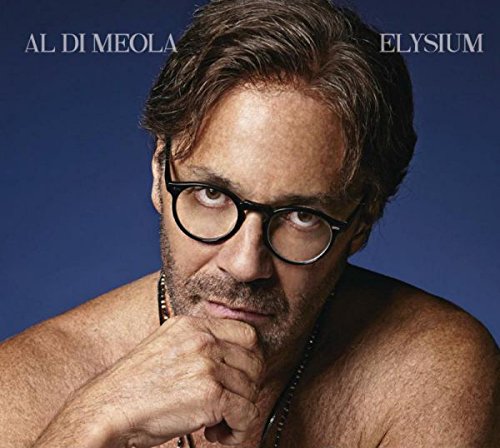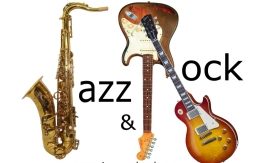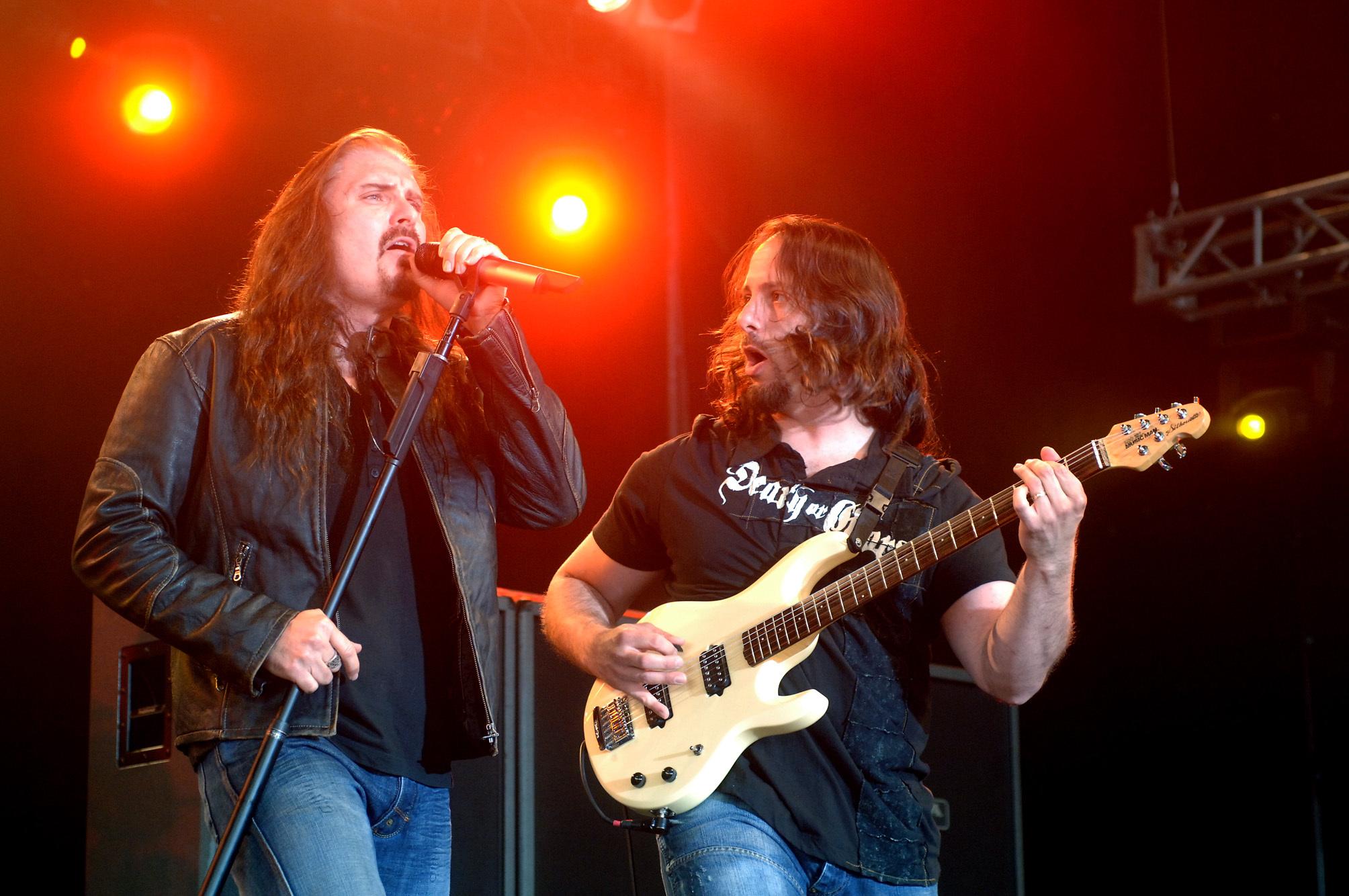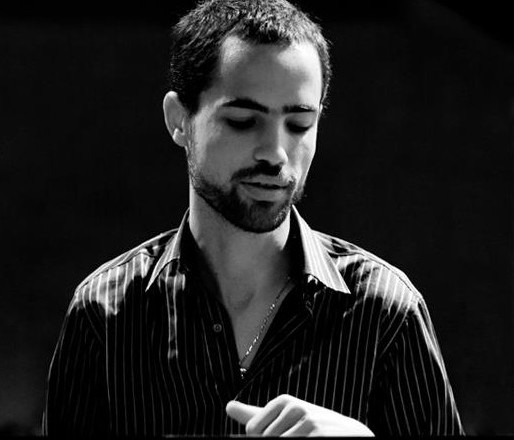
Al Di Meola is the string wizard who created musical attractions such as „Mediterranean Sundance“ or „Land of the Midnight Sun“ with compelling technology and rapid speed. As a 19-year-old kid he stunned the music world with his guitar solo on „Excerpt from the First Movement of Heavy Metal“, when he joined the fusion band Return To Forever. It should be the starting point of shred guitar. Al Di Meola, 60, is still far from retiring from public life. And he is still a mine of creativity, and he proves it with his new album „Elysium“.
No, he had not thought of Beethoven’s famous symphony neither of Schiller’s poem when entitling his new album “Elysium”. But it has yet to do with Germany, told Al Di Meola, who seems almost exhilarated while talking with me. „It was about a place of perfect happiness.” And yes, Germany plays a major role at this point, he says with a wink. For two years the guitar virtuoso is being seen very often in Munich, where his fiancée, a 27-year-old journalist lives.
Di Meola dedicated a piece to his fiancée on his new album. „Stephanie“ is one of the graceful, dance-footed compositions – by the way as well as the title track. Otherwise, Di Meola moves rather more on abstract paths, and if you listen to the opening composition „Adour“, you have to listen very closely to recognize the master of winged finger at all. „The new album is not at all like any of my albums, and it doesn’t sound like any of my albums, and I am glad that it has a life of its own,“ he explains. He dispensed with a bass in all of his arrangements, and he is frequently heard with different guitars, where sometimes acoustic filigree sounds are combined with distorted electric guitars, highlighted Latin runs with rock riffs. The different sounds that he weaves, he sees as a „linking the past with the future.“
The exquisite rhythm scenes are created by Rhani Krija (percussion) and Peter Kaszas (drums). Three keyboardist / pianists provide a wonderful theater heaven: Barry Miles, Mario Parmisano and Philippe Saisse.
The compositions sound like kind of an essence of more than 40 years of creative work of the 60 year old master. This also means that Di Meola fits small quotes of John McLaughlin, Ralph Towner and Larry Coryell in his solos. While „Sierra“ initially meant to be an appreciation of his friend Paco de Lucia, who died later last year, but then there were a number of elements in the song which very much point to Pino Daniele. „Paco and me shared a large rhythmic camaraderie,“ says Di Meola, who incidentally will get the Miles Davis Award for his contributions to jazz at this year’s Jazz Festival in Montreal/Switzerland.
Much of „Elysium“ sounds abstract, somehow reduced and more balanced than usual. „When I was in my terrible divorce, composing was kind of a therapy. And these abstract aspects that you hear on the album are the results of my pain. But there are also other aspects – the joy of my new relationship, the passion. The album reflects these two aspects of my life”, he says.
But Di Meola also demands a lot of his listeners. This is no background music in a cocktail lounge, it is a musical journey with an undetermined destination. For example, there is „Purple & Gold“. It begins very lyrical, acoustic and with a sort of a steel guitar in the background, but then the journey takes again and again a totally different course. „Just like in real life!“, Al Di Meola says, laughing. „In life there are always situations you have to decide whether you turn left instead of turning back. You cannot always know what to expect.”
For Al Di Meola, the former wunderkind of the fusion scene of the early 1970s, instrumental music is something sophisticated. „We must work with all other means to express something, because we do not use words.“ And the listeners must get into it, and if they do, then there is so much to discover for them.
But nevertheless what makes this album a typical Al Di Meola-work, is his elegant handling of this fascinating rhythms and his precise technique. Both things are very important to him. At the beginning of the creative process, it always goes to the rhythm. In general, he says, his guitar playing is much more geared to drums and percussions than to other guitar styles.
But technique for Al Di Meola is „only“ a means to an end. „In the early years of Fusion technique was a big part of the sound”, he says. “Above all, you had to just be able to play these complex compositions of Chick Corea. But technique is not everything. Paco was one of the fastest, cleanest intoning and most expressive guitarists, but what inspired me was his expression and accuracy.“ Exactly what „Elysium“ just makes Al Di Meola’s „place of perfect happiness“.
(Cem Akalin)



